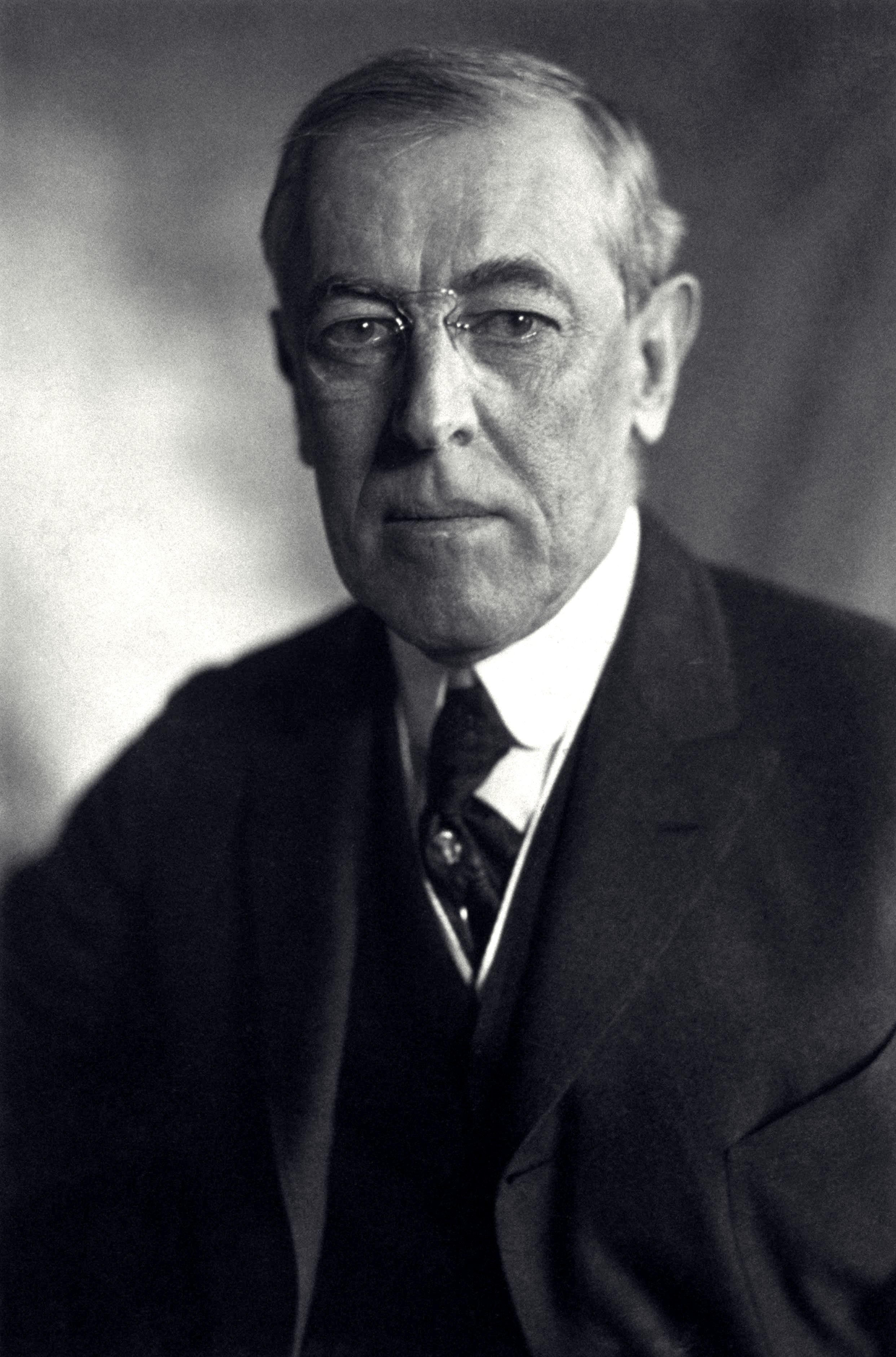Thomas Woodrow Wilson , foi eleito presidente dos Estados Unidos por duas vezes seguidas, ficando no cargo de 1912 a 1921. Era membro do Partido Democrata, tendo também sido reitor da Universidade de Princeton e laureado com o Nobel da Paz em 1919. Foi o presidente americano durante a Primeira Guerra Mundial, que durou de 1914 a 1918. Interrompeu uma série de mais de 16 anos de presidentes do Partido Republicano. Foi a figura chave por trás da Liga das Nações - fundada durante a Primeira Guerra Mundial para manter a paz internacional.
Woodrow Wilson é considerado um pai do idealismo, lutou por uma Alemanha livre e com condições para um desenvolvimento econômico e democrático. Principal impulsionador da Sociedade das Nações, projeto que só não falhou por completo porque muitas das estruturas da SDN foram utilizadas futuramente na ONU e pelo fato de ter resolvido alguns pequenos conflitos entre nações na Europa e na América do Sul, tudo fez para que os políticos se tornassem sensíveis às populações que representavam, mostrando que estas são as mais prejudicadas com a guerra, e que as massas deviam ter uma opinião quanto à política externa do seu país . O fracasso da SDN está intimamente ligado com o facto dos EUA não terem aderido, apenas parcial e sucessivamente, à organização.
Woodrow Wilson também ficou conhecido por suas convicções racistas: reduziu bruscamente a participação de negros na política em muitos estados dos EUA, apesar de em sua campanha apregoar os Direitos Civis. Além disso, foi um grande interventor militar na América Latina, invadindo Nicarágua, México, Panamá e Haiti.
✵
28. Dezembro 1856 – 3. Fevereiro 1924
•
Outros nomes
Томас Вудро Вильсон
